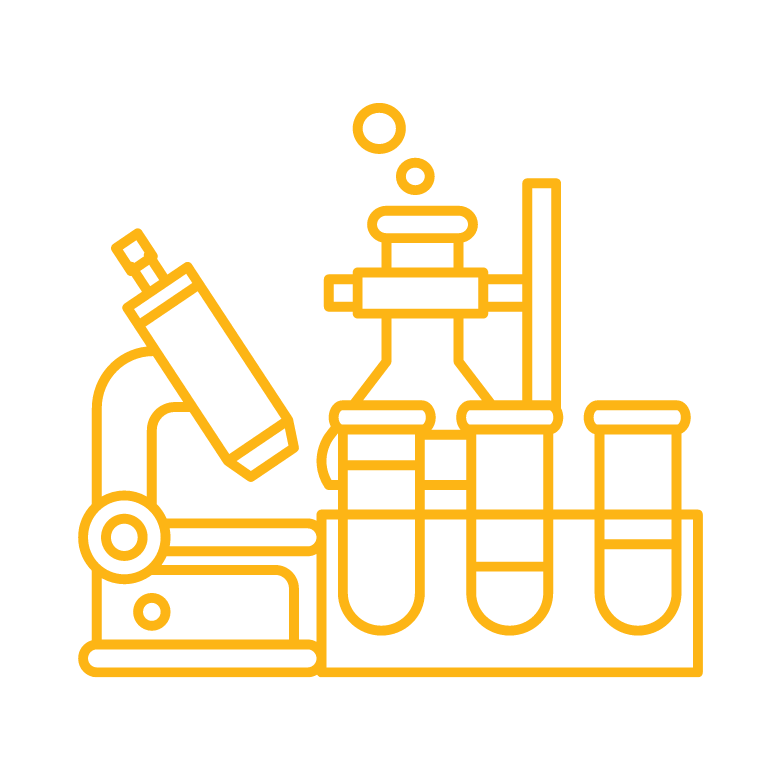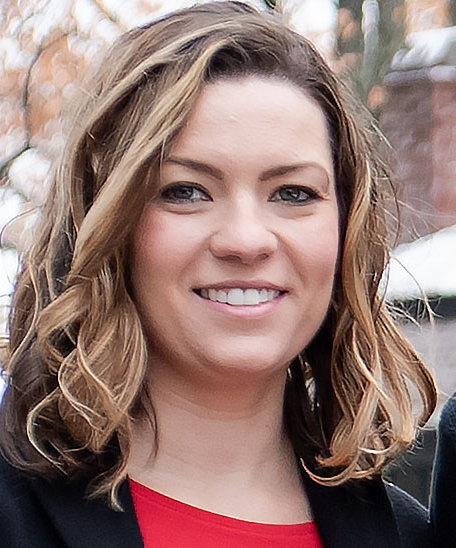Cutting-Edge Curriculum
Bringing medicine one step closer to the creation of functional organs and tissues
It is now possible for you to access the training you need to bring 3D bioprinting back to your organization. If you’re one of these trailblazers, our certificate program will give you the tools, inspiration, and knowledge to embark on 3D bioprinting and biofabrication research in your lab.
Curriculum Overview
The online Graduate Certificate in 3D Bioprinting and Biofabrication includes three graduate-level, credit-bearing courses taught by expert CMU faculty and features the following course progression:
For Summer 2026 Start:
|
Semester |
Summer 2026 |
Fall 2026 |
Spring 2027 |
|---|---|---|---|
| Course | Tissue Engineering | Biomaterials | 3D Bioprinting & Biofabrication |
Each course will appear on your Carnegie Mellon transcript with the grade earned. To earn the certificate, you must successfully complete all courses in the program. If you are only interested in one course, however, you may complete that course only and it will show on your transcript with the grade earned.
Course Descriptions:
Biomaterials
Course Number: 42-880
Units: 9 units
Study the synthesis, characterization, and functional properties of organic and inorganic biomaterials such as natural biopolymers, synthetic polymers, and soft materials with additional treatment of metals and ceramics. In this course, you will learn fundamental issues related to the utility of biomaterials like biomechanics, transport, degradability, biointerfaces and biocompatibility, stability, and fate in the body, along with basic approaches to characterization. Clinical applications for biomaterials and new directions in design and synthesis to achieve better biocompatibility will also be emphasized.
Course Waivers
Students with an educational background in biomaterials may waive the Biomaterials course upon successful completion of an exemption exam, which will be administered to admitted students only. Once admitted, additional information about the exam will be provided.
Students who are interested in taking the exam should indicate their interest in the application. Upon successful completion of the exam, students will complete the remaining courses in the program to qualify for the certificate. No credit will be earned, nor will tuition be assessed, for the waived course.
Bioprinting & Biofabrication
Course Number: 42-887
Units: 12 units
Gain hands-on experience with methods that are used to fabricate scaffolds often used in tissue engineering, drug delivery, and some medical devices. For example, you will learn plastic filament deposition methods (FDM) to 3D print thermoplastic materials and molds for casting soft hydrogel materials. You will also learn how to 3D bioprint soft hydrogel materials into a support bath material. Topics covered in this course include (but are not limited to): chemical and physical properties of biomaterials, CAD, and post-processing methods.
Tissue Engineering
Course Number: 42-882
Units: 12 units
Explore advanced cellular and tissue engineering methods that apply physical, mechanical and chemical manipulation of materials in order to direct cell and tissue function. Students will learn the techniques and equipment of bench research including cell culture, immunofluorescent imaging, soft lithography, variable stiffness substrates, application/measurement of forces and other methods. Emphasis will be placed on developing the written and oral communication skills required of the professional scientist.
Meet Our World-Class Faculty
Education: Ph.D., Duquesne University
Research Interests: Tissue engineering, biomaterials, cell injection therapy, corneal endothelium, cystic fibrosis
Research Focus: Creating biomimetic extracellular matrix based materials for tissue engineering and cell delivery. A majority of Dr. Palchesko's research at CMU has focused on treating corneal blindness using various methods like developing a technology to increase the integration of corneal endothelial cells post-injection for cell injection therapy based approaches. She is currently adapting the cell injection technology for use in the treatment of Cystic Fibrosis and other diseases.
The Building Blocks of Our Curriculum

Outside of the Box
There’s the traditional way of performing medicine, and then there’s forward-thinking techniques. At Carnegie Mellon, we empower students to learn the latest technologies and brainstorm big ideas they can put into practice—today or tomorrow. In this program, you will learn the fundamentals of fabricating structurally complex 3D tissues, how to adapt a standard 3D printer for bioprinting purposes, and how to design and fabricate biomedical scaffolds for tissue engineering, drug delivery, and medical devices. This program equips you with everything you need to do what was once thought impossible.

Hands-On Learning
With 3D bioprinting, you’re not learning if you’re not doing. That’s why our certificate takes an intense hands-on approach. In every course, you will learn how to work with appropriate materials, choose the right cells for tissue engineering, perform fabrication methods, and communicate your results to experts. Best of all, when you’ve finished the coursework, you will understand how to apply this knowledge in a real-life laboratory. Many of our students will take their knowledge back to the benchside to test product biocompatibility, biogradability, and functionality.

Bench to Bedside
The ultimate goal of 3D bioprinting is to bring us closer to fabricating organs and other tissues for patients. This certificate will prepare you to plan, organize, and lead your own bench-to-bedside project in a small group setting. This rigorous project will require you to select appropriate materials based on their properties, engage in simulated in vitro and in vivo testing of these materials, and follow key steps in the FDA approval process. It’s everything you need to bring 3D bioprinting back to your own lab.
